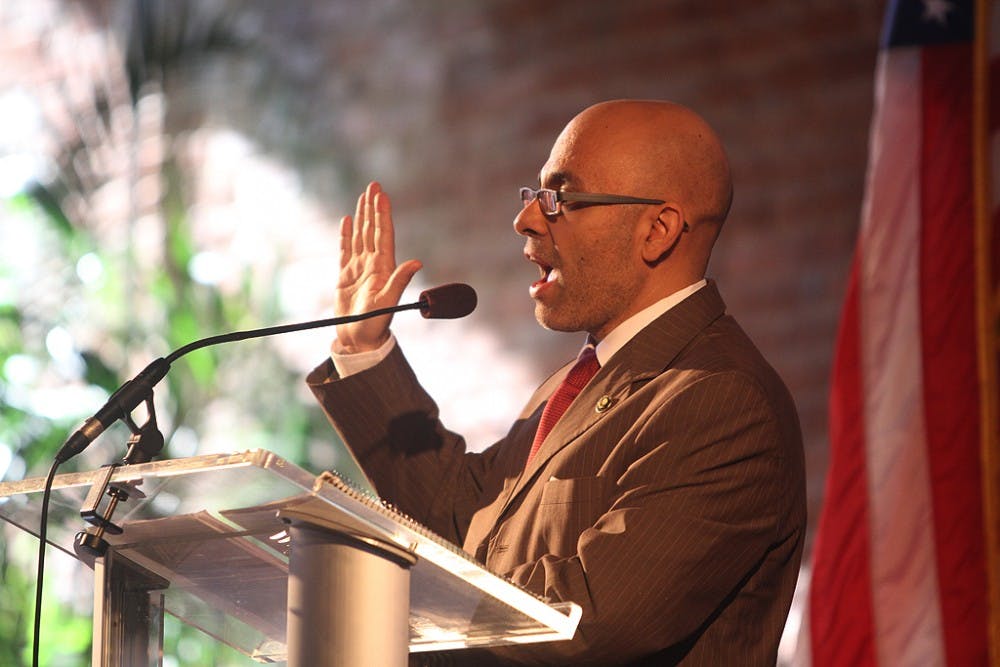Some members of Durham’s Latino community are looking for greater resources and community outreach from public officials.
The White House Hispanic Community Action Summit was conducted as a dialogue at the American Tobacco Campus Saturday. Members of the Triangle area were able to dictate discussion and White House officials responded in turn. The summit brought together about 400 stakeholders in Durham and more than a dozen federal officials to discuss health care, education, the economy and immigration policy as they affect the local Latino community.
“This is the hardest thing we’re going to do—identifying the next steps and how we can solve them,” said Jose Rico, executive director of the White House Initiative on Educational Excellence for Hispanics.
Durham was the 16th city to host the national series of discussions between Latino community leaders and White House officials. Mayor Bill Bell said Durham, whose population is about 14 percent Latino, is a key location for this discussion due to the Latino community’s growth in the city’s industries.
“People in this area need to open their eyes to the blatantly unjust practices of the government,” said Irving de Dios, a 27-year-old Raleigh resident. “I have a son, and I want to raise him in a country I can be proud of—my country. And I don’t need a paper to say that this is my home.”
De Dios wore a T-shirt that noted his status as an illegal immigrant and said he would not succumb to unfair immigration laws that tear families apart.
“We need to fix a broken system,” said Esther Olavarria, counselor to the secretary of the U.S. Department of Homeland Security. “It’s not that Latinos don’t want to do it—it’s that they can’t.”
In cities such as Durham that rely on small businesses, technical assistance and business development advice should be offered to ambitious members of the Latino population, she added.
In 10 years, Latinos will comprise about 30 percent of the nation’s work force, Rico added.
“This is also a battle between legislation and administration,” said lawyer Ann Robertson, a Raleigh resident. “These laws are presumably made with good intentions, but they end up putting innocent people behind bars and separating parents from their children.”
Although significant problems persist, there have also been empirical signs of progress, including the growing number of Latino entrepreneurs, said Julie Rodriguez, associate director of Latino affairs and immigration for the Office of Public Engagement. She noted the growth of entrepreneurs especially among the Latina population. During the economic downturn, President Barack Obama and his administration prevented 1.9 million Latinos from falling into poverty with the American Recovery and Reinvestment Act.
Candid discussions are necessary to incite change, said Toby Chaudhuri, who handles strategic communications for several White House initiatives. The government is far removed from the people they serve at times and sometimes politicians need to let communities take the lead.
“The future of our country depends on the future of our Hispanic communities,” Chaudhuri said. “Hispanics make up the largest and fastest-growing group in our country—government has a responsibility to understand what this growth means for federal policies.”
Audience member Channa Pickett, senior program coordinator for the Office of Durham and Regional Affairs, said the drive to bring changes for the Latino community was the most important aspect of the event.
“Si se puede,” Rodriguez said, Spanish for “yes, we can.”
Get The Chronicle straight to your inbox
Signup for our weekly newsletter. Cancel at any time.

